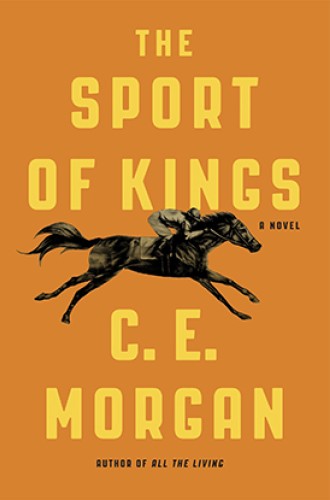Love and horses
In C.E. Morgan’s world, anything goes as long as it’s couched in the language of the equine.
The sport “exists on mystique,” John Jeremiah Sullivan writes in Blood Horses, his memoir and amateur history of horse racing. “If you want a sport of kings in a democracy, you must somehow find a kingdom. . . . Its cult obtains up and down the class ladder,” he continues.
Morgan is a native of Kentucky—she has boomeranged back to her home state after a stint at Harvard Divinity School—so she didn’t have to look far for that kingdom. The Sport of Kings is Faulknerian in its saga of one white family in one place who is facing the reality that its tree must branch if the family wishes to survive. Faulkner’s Mississippi is now Kentucky; his Compsons are now Morgan’s Forges; and Benjy’s fragmented narrative parts are now interludes after each long chapter that may be dreams, scientific jargon, or technical details from jockey manuals.
But mapping Morgan’s book onto The Sound and the Fury doesn’t grant either book the singularity it deserves. While Faulkner chronicles the history of the Compsons primarily by means of their interpersonal affairs, Morgan introduces an intermediary—the business, corruption, wealth, romance, heartache, and sport of racing horses—that absorbs her characters’ thoughts, emotions, and actions. In the South, one learns not to talk about money, sex, politics, and religion. In Morgan’s kingdom, anything goes as long as it’s couched in the language of the equine.






